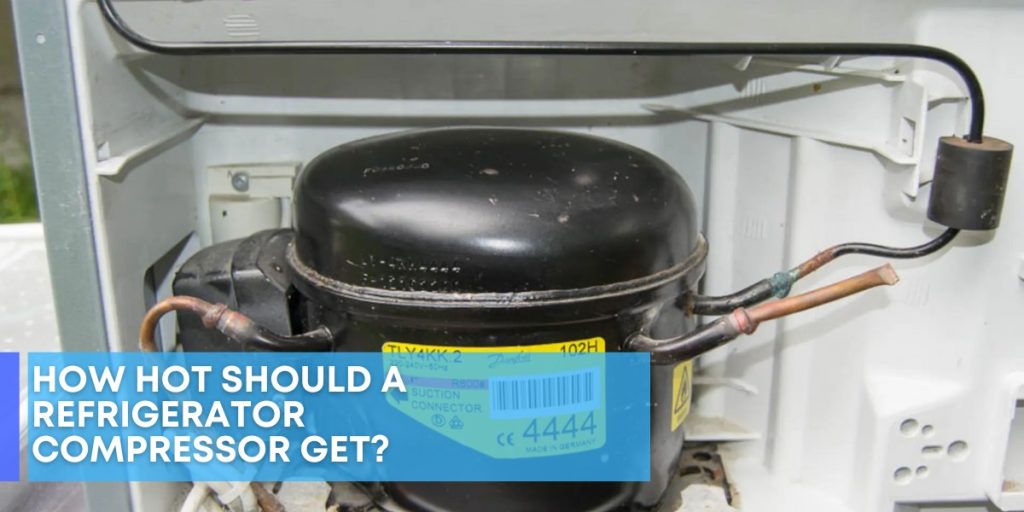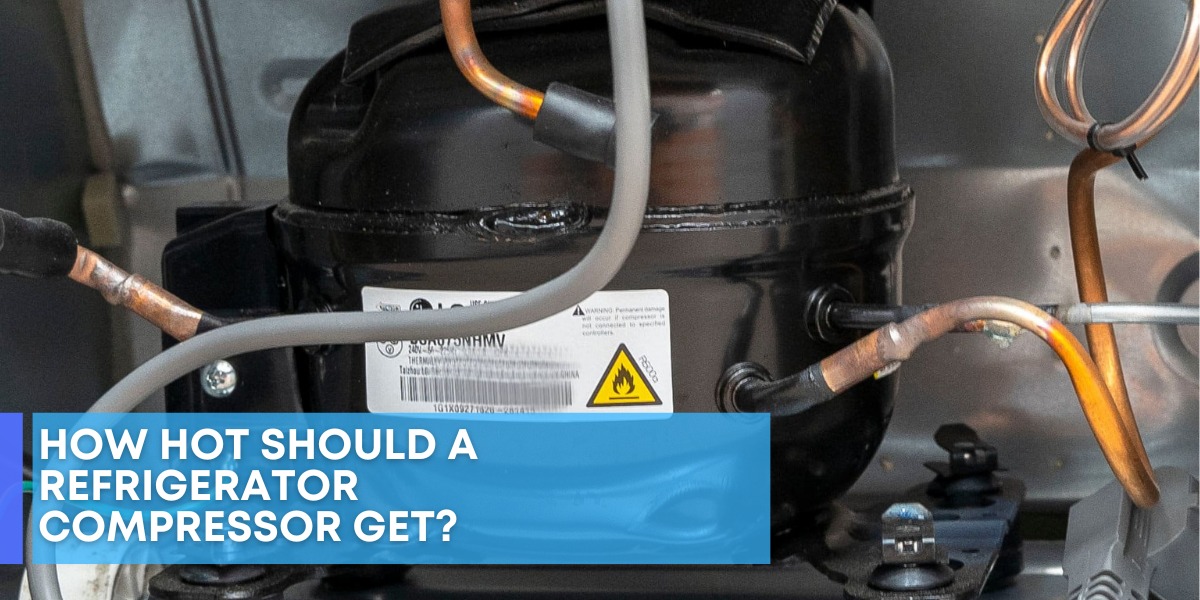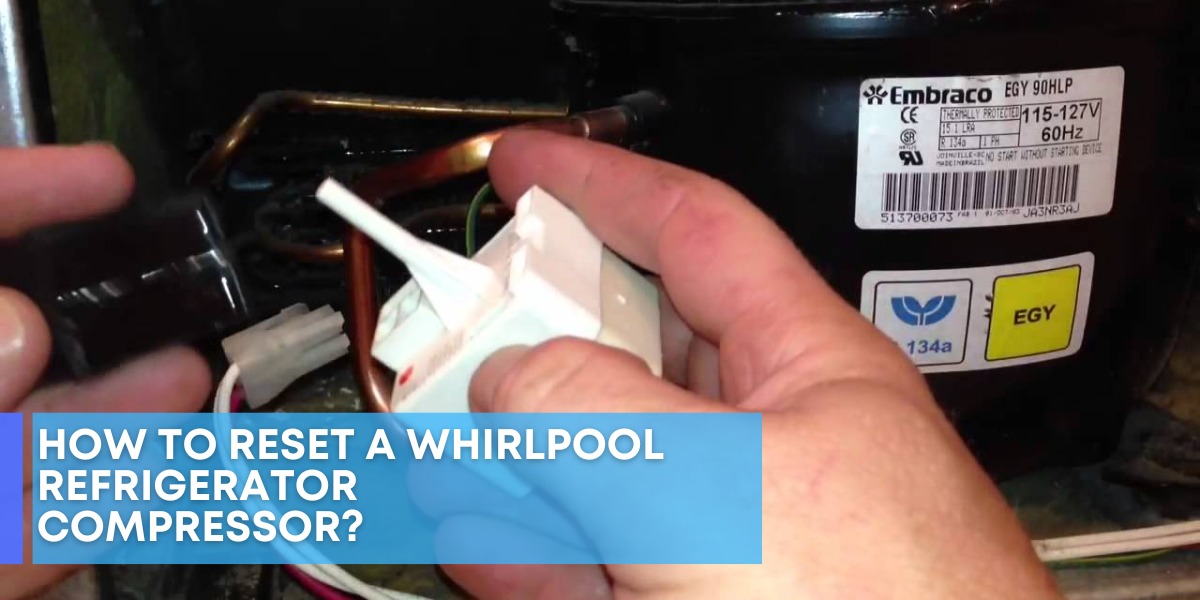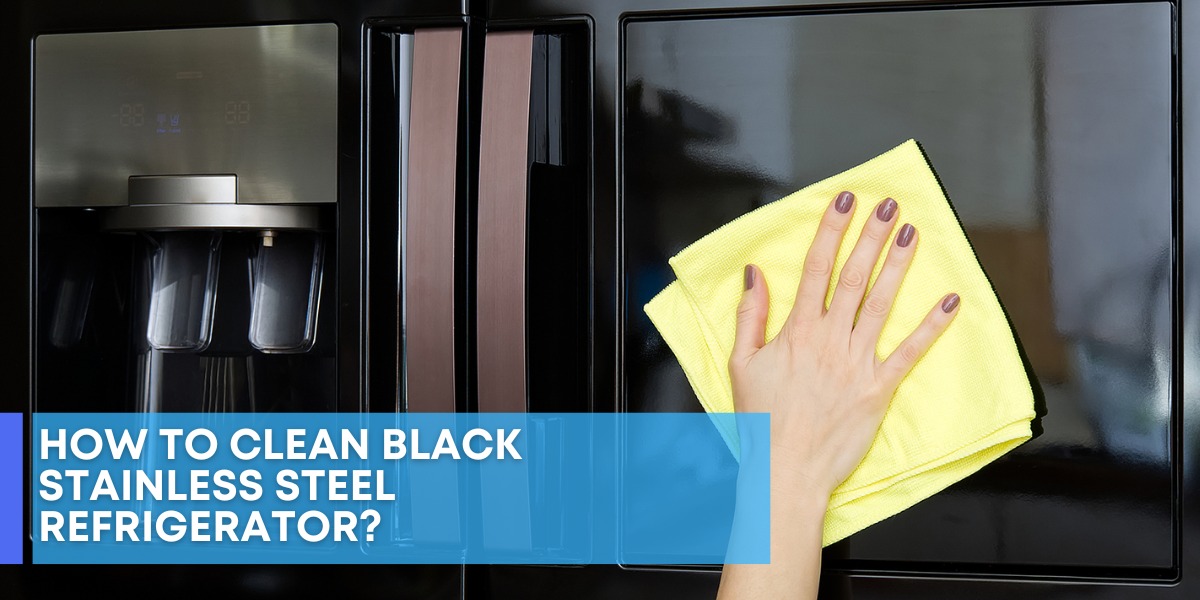Have you ever wondered how hot your refrigerator compressor should be running? It’s common to ignore this part of our appliances until something goes wrong. However, understanding the ideal temperature range can help prolong the life of your fridge while also keeping your food fresh and safe. In this article, we will delve into the inner workings of a refrigerator compressor and provide insight into what temperatures are normal – so grab a cold drink and let’s get started!
The ideal refrigerator compressor temperature
Most refrigerator compressors are designed to operate within a range of 45-55 degrees Fahrenheit. A compressor that is too cold can cause the unit to ice up, which can lead to reduced efficiency and potential damage. A compressor that is too hot can overheat and shut down.

Ways to keep your refrigerator compressor cool
Most people don’t think about their refrigerator compressor, but it’s an important part of the appliance. The compressor is responsible for circulating refrigerant throughout the system. If the compressor overheats, it can cause serious damage to your fridge.
There are a few ways you can keep your refrigerator compressor cool:
- Make sure the fridge is properly ventilated. The compressor needs airflow to help keep it cool. If your fridge is crammed into a tight space, consider moving it to give the compressor more breathing room.
- Check the condenser coils. These coils help dissipate heat from the compressor. If they’re dirty, they won’t be able to do their job properly. Clean them with a vacuum attachment or brush at least once a year.
- Keep the area around the fridge clean and free of clutter. This will help promote good airflow and prevent dust and dirt from clogging up the coils (see tip #2).
- Inspect the gasket seal around the door. A worn or damaged gasket can let warm air into the fridge, causing the compressor to work harder and potentially overheat. Replace the gasket if necessary.
- Avoid putting hot food directly into the fridge. Let leftovers cool down to room temperature before storing them in the fridge; this will help reduce how hard your fridge has to work (and how much heat it produces).
What can happen if your refrigerator compressor gets too hot?
If your refrigerator compressor gets too hot, it can overheat and cause the fridge to stop working. If this happens, you’ll need to call a repairman to fix it. In some cases, the compressor can catch fire. This is why it’s important to keep an eye on the temperature of your fridge and make sure it doesn’t get too hot.
How to troubleshoot a hot refrigerator compressor?
If your refrigerator compressor is getting too hot, there are a few things you can do to troubleshoot the problem. First, make sure that the compressor is properly ventilated. If the compressor is not properly ventilated, it will overheat and shut down.
Next, check the condenser coils to see if they are dirty or blocked. If the coils are dirty or blocked, they will not be able to dissipate heat properly and the compressor will overheat. Finally, check the evaporator coils to see if they are frozen. If the coils are frozen, they will not be able to absorb heat properly and the compressor will overheat.
How Refrigerators Work?
Refrigerators work by moving heat from the inside of the fridge to the outside. This is done by a process called convection. Heat always moves from warmer areas to cooler areas. So, when the air inside the fridge is warmer than the air outside, the heat will move from the inside to the outside.
The compressor is a key part of this process. The compressor is a pump that circulates the refrigerant through the fridge. The refrigerant is a gas that becomes liquid when it’s compressed. As it circulates, it picks up heat from the inside of the fridge and dumps it outside.
The compressor is powered by an electric motor. When the motor runs, it drives a piston that compresses the refrigerant gas. This raises its temperature and pressure. The hot, high-pressure gas then flows into the coils on the back of the fridge where it cools down and becomes a liquid again.
The Components of a Refrigerator
A refrigerator compressor is made up of several different parts, all of which work together to keep your fridge cold. The main components are the condenser, evaporator, and compressor. The condenser coils are located on the back of the fridge and work to release heat from the refrigerant. The evaporator coils are located inside the fridge and work to absorb heat from the air. The compressor is located under the fridge and works to pump refrigerant through the system.
The Ideal Temperature for a Refrigerator Compressor
The ideal temperature for a refrigerator compressor is between 45 and 50 degrees Fahrenheit. Anything lower than that can cause the compressor to overwork, which can shorten its lifespan. Conversely, anything higher than 50 degrees can cause the compressor to underperform, which can also lead to premature failure.
How to Keep Your Refrigerator Compressor Cool?
If your refrigerator compressor gets too hot, it can cause the fridge to stop working.
Here are some tips to keep your fridge compressor cool:
- Make sure the fridge is properly ventilated. If the fridge is enclosed in a tight space, the compressor can overheat.
- Clean the coils on the back of the fridge regularly. Dust and dirt can build up on the coils and cause the compressor to overheat.
- Keep the fridge away from heat sources such as stoves and radiators.
- Check the temperature of the room where the fridge is located. If it’s too warm, it can make the compressor work harder and cause it to overheat.
Troubleshooting Tips for a Hot Refrigerator Compressor
If you’re having trouble with your refrigerator compressor getting too hot, there are a few troubleshooting tips you can try. First, make sure that the fridge is properly ventilated. If it’s not, then the compressor can overheat. Secondly, check the condenser coils to see if they’re clean. If they’re dirty, then they won’t be able to dissipate heat properly and the compressor will get too hot. Finally, make sure that the fridge is level. If it’s not, then the compressor can vibrate and cause friction, which can lead to overheating.
“For the transportation of your home appliances, we will handle free of cost. So, we are connected with many movers and packers in Dubai, Movers and packers in Abu Dhabi, Movers and Packers in Al Ain and Movers and Packers in Ajman. “
The temperature of a refrigerator compressor is an important factor in keeping your food fresh and safe for consumption. Knowing what the optimal temperature range should be can help you to ensure that it is working properly and efficiently. While the ideal temperature may vary from make and model, most refrigerators should maintain a compressor temperature between 35-45°F (1.7-7 °C). If you are concerned about the temperatures of your refrigerator, contact your manufacturer or local appliance repair service to have them check it out just to be sure!










